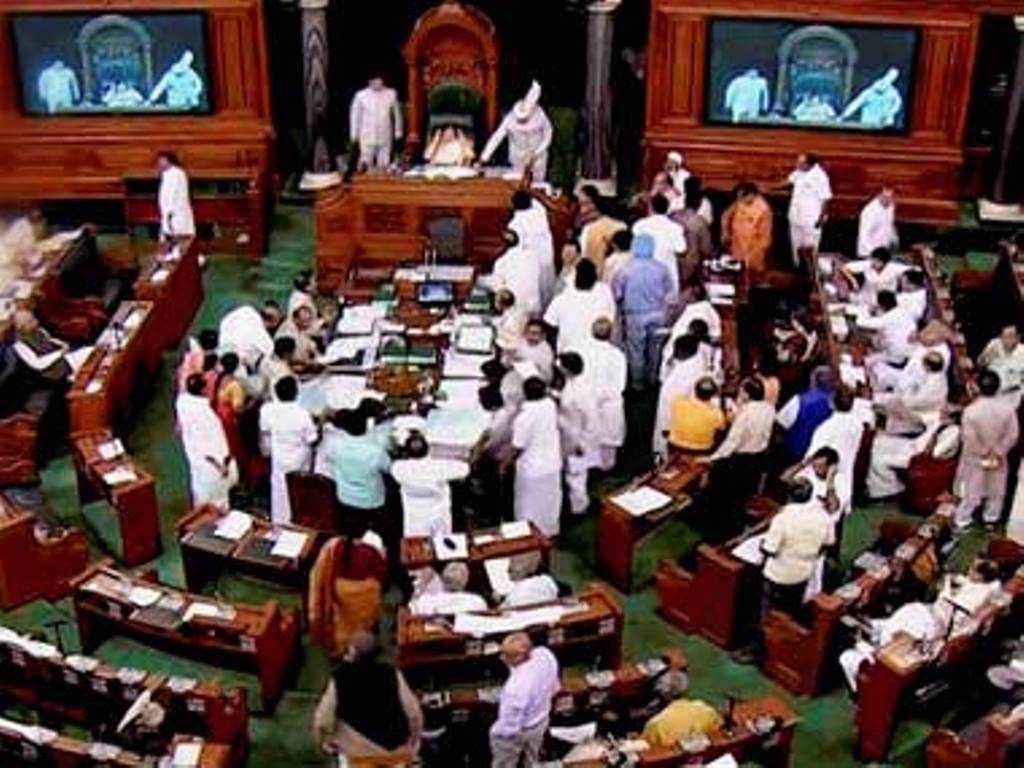Waqf Bill Introduced in Rajya Sabha: Govt Hails ‘Reform’, Opposition Calls It an Assault on Constitution

TCN News Desk
New Delhi: The Waqf (Amendment) Bill, 2024, has triggered intense debate and divided opinions in political circles as it was presented for consideration in the Rajya Sabha (Upper House of Indian Parliament) on April 4, following its passage in the Lok Sabha (Lower House) the previous day.
Seeking to amend the Waqf Act of 1995, the bill aims to overhaul the administration and management of waqf properties in the country. While the government hails the bill as a step towards “transparency” and “better governance”, the Opposition, particularly the Congress party, has launched a scathing attack, calling it a "brazen assault on the Constitution" and a tool for fostering permanent societal polarisation.
Kiren Rijiju champions the bill
Union Minister of Parliamentary Affairs Kiren Rijiju moved the motion for the consideration of the bill in the Rajya Sabha, emphasising its historical importance. He referred to the Sachar Committee report, which had highlighted the underutilisation of waqf properties and noted that the number of such properties had increased from 4.9 lakh in 2006 to 8.72 lakh today, thus significantly boosting the income from these assets.
He pointed out that the Sachar Committee had recommended that the waqf boards be made more inclusive, a suggestion that has been incorporated in the new amendments.
The minister also drew attention to the report of a previous Joint Parliamentary Committee (JPC) headed by senior Congress leader K Rahman Khan, which had identified issues with the infrastructure and efficiency of waqf boards.
He appealed to the Congress party and its allies to support the Waqf (Amendment) Bill, asserting that all the recommendations of earlier committees, including those under the United Progressive Alliance (UPA), had been included in the bill.
Rijiju claimed that the bill had received wide consultation, with 284 organisations and over one crore people submitting memorandums and opinions. He highlighted the inclusion of women in the governance of waqf boards as a key positive change, with two women members on the Central Waqf Council and two mandatory women members at the state level.
He also pointed to the revocation of Section 40, which had allowed waqf boards to claim government land as their own.
Rijiju dismissed Opposition’s claims that non-Muslims would control waqf properties, calling the accusations unfounded and misleading.
Opposition's strong criticism
However, the Opposition, led by the Congress, strongly opposed the bill. Congress Parliamentary Party Chairperson Sonia Gandhi described the bill as a "brazen assault" on the Constitution. She accused the BJP-led government of using it as a tool to create permanent polarisation in the society.
Gandhi expressed grave concerns about the “suppression” of Opposition voices in Parliament, accusing the government of preventing leaders like Congress' Leader of Opposition in the Rajya Sabha, Mallikarjun Kharge, from speaking.
Congress MP Kiran Kumar Chamala went further, alleging that the bill was an attempt to undermine the Muslim community. He criticised the BJP for using Parliament as its platform to push through the legislation despite objections, calling the process undemocratic.
The Congress also denounced the timing of the bill's passage in the Lok Sabha, with some MPs likening it to a "dark day" for the country. They expressed disappointment that the bill was passed in a marathon session that stretched beyond midnight, citing a lack of genuine debate and discussion.
Support from Muslim leaders, Sufi groups
On the other side, several regional leaders and Muslim community representatives have backed the bill. Uttar Pradesh's Minority Affairs Minister, Danish Ansari, lauded the Waqf (Amendment) Bill, claiming it would open new avenues for the development of Muslims, particularly in states like Uttar Pradesh where waqf properties are abundant.
Ansari emphasised that the bill would ensure proper auditing of waqf boards, remove encroachments and give representation to Pasmanda Muslims, a historically marginalised section of the community.
He also accused Opposition leaders of being blind to the potential benefits of the bill, which he claimed would enhance the revenue generated by waqf properties, currently underutilised.
He estimated that waqf properties, valued at over Rs 1.25 lakh crore, currently generate just Rs 150 crore annually, but with proper management, the revenue could rise significantly, benefiting Muslim youth through the creation of colleges, hospitals and skill development centres.
Indian Sufi Foundation President Kashish Warsi also welcomed the bill, urging Muslims to read it before forming an opinion. He praised Union Home Minister Amit Shah’s speech in the Lok Sabha, which clarified that the bill posed no harm to Muslims and would benefit them by addressing issues of mismanagement and ensuring that waqf properties were used for their intended purposes.
The road ahead
The Waqf (Amendment) Bill has stirred a public debate as well. While the government insists that the bill will bring greater efficiency, transparency and inclusivity to the management of waqf properties, the Opposition remains steadfast in its criticism.
As the bill moves through the Rajya Sabha, where it is expected to face intense scrutiny, its fate will depend on the balance of power and the extent to which the government can convince its critics of its merits.
The bill seeks to improve the registration process, while incorporating technology to manage waqf records. The passage of the bill marks a significant development in the ongoing debate over the management of waqf properties and their impact on the Muslim community in India.
